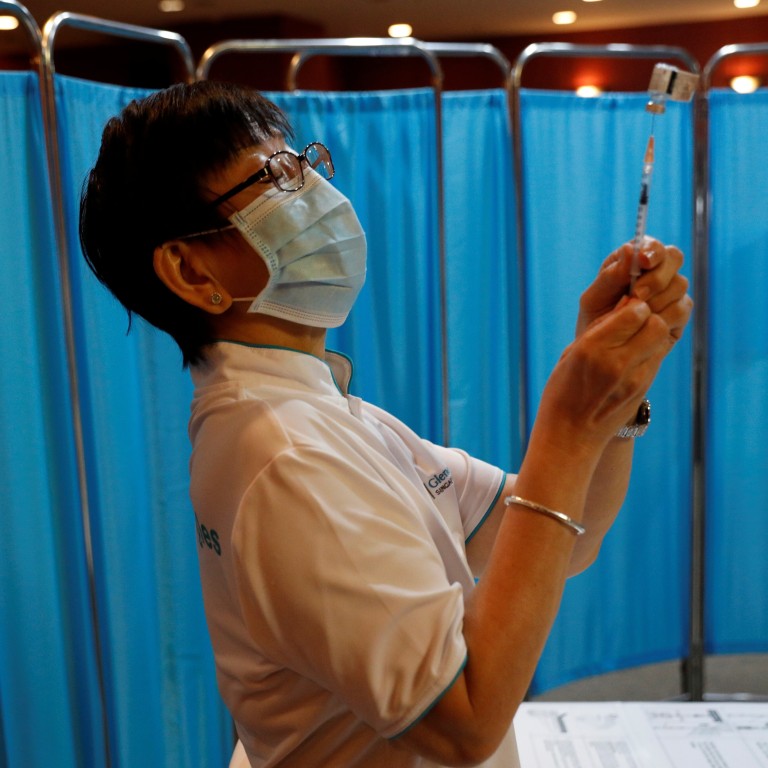
Coronavirus: could Singapore’s vaccine drive become a victim of the city’s own success?
- While the US struggles with anti-vaxxers and Indians worry about vaccine safety, Singapore has a different concern
- So good has it been in fighting Covid-19, some people simply don’t see a pressing need to get a jab
The city state has now turned its attention to its vaccination drive, promising free shots for the entire 5.7 million population. Health Minister Gan Kim Yong declared in Parliament this month: “The best time to vaccinate is now.”
Singapore tightens restrictions in response to coronavirus variants
A government tender showed the Ministry of Health was looking for a vendor to set up 36 vaccination centres able to process 2,000 people a day and 10 mobile teams that could do mass vaccinations at places such as nursing homes.
Local broadsheet The Straits Times said this meant authorities could deliver 70,000 shots daily across the island. At that rate, given the Pfizer vaccine needs to be administered in two doses, Singapore would be able to cover its population in under six months.
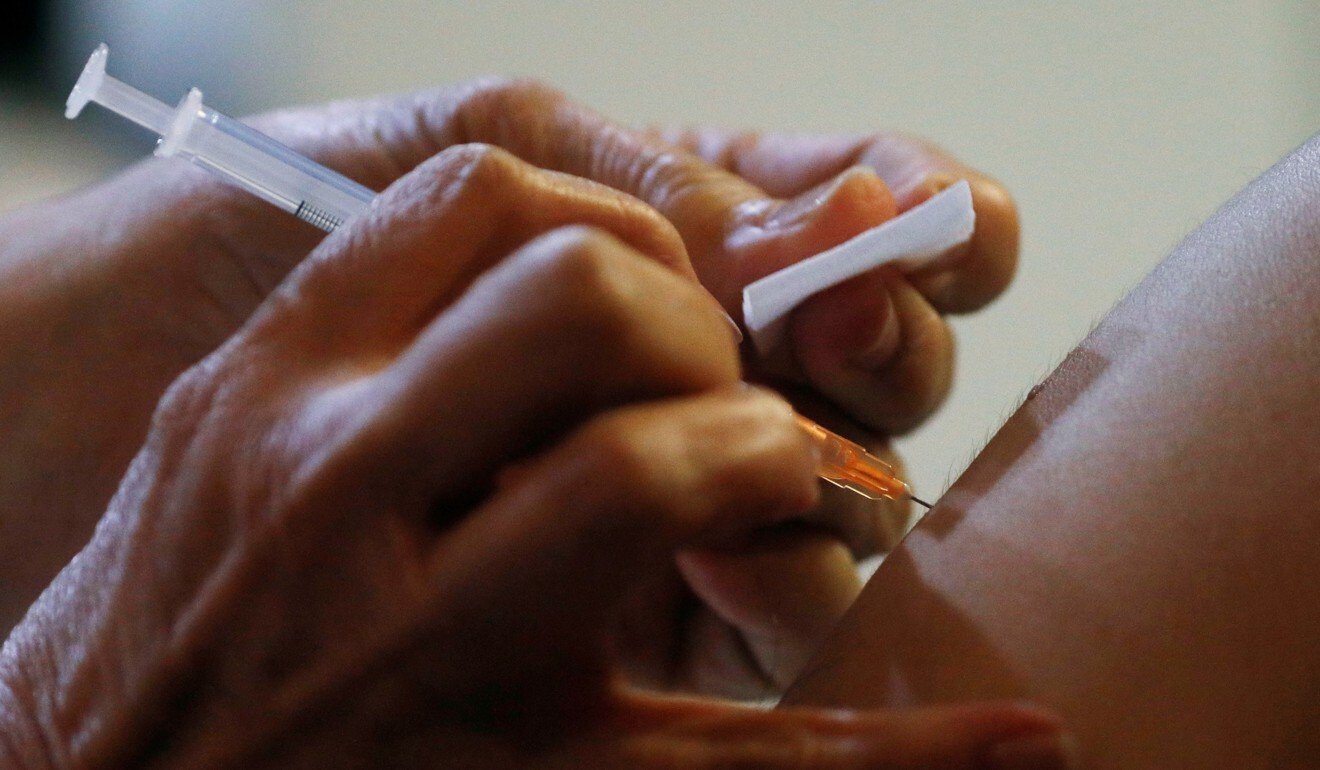
VACCINE HESITANCY
One problem Singapore, like many other countries, will face is vaccine hesitancy. But surveys and anecdotes suggest the particular strain of vaccine hesitancy that the city state – with around 60,000 cases and only 29 deaths – needs to deal with is subtly different to that faced in countries where infection levels are soaring.
In India, where there have been more than 10 million infections and over 153,000 deaths from Covid-19, one of the government’s biggest concerns is that fears over vaccine safety will prevent its citizens from coming forward for jabs. In the United States, where there have been 24 million infections and around 400,000 deaths, concerns over misinformation and fake news spread by anti-vaxxers and conspiracy theorists are giving the government similar cause for worry.
In Singapore, while some residents have questioned the vaccine’s safety, there is another concern: that because the country has done such a good job in keeping the virus under control, some residents will be in no hurry to get vaccinated and adopt a “wait and see” attitude instead. The bulk of Singapore’s cases in recent months have been imported. Locally, there were just 11 cases in November, 14 in December and 27 so far in January.
Coronavirus: Singapore clarifies how contact-tracing app can be used by police
A recent government survey found that while almost six in 10 Singaporeans would get vaccinated, a third were more cautious and preferred to wait for more data before deciding, Gan revealed in Parliament.
While this compares favourably to an acceptance rate of between 28 and 73 per cent in other countries, according to a YouGov poll, it poses a potential problem for plans to achieve herd immunity, which experts say will require between 70 and 90 per cent of the population to be inoculated.
Local media reports have suggested that vaccine hesitancy exists even among high-risk groups such as health care workers and frontline staff.
“Joanne”, a nurse at a public hospital, told This Week in Asia she was not “superbly keen” on the vaccine, partly because she was trying for a baby but also because she felt she could afford to “observe” how things went.
Singapore Airlines on Monday revealed only half of its employees who were eligible for the vaccine had signed up, as the transport minister urged it to become the world’s first carrier with a 100 per cent inoculation rate.
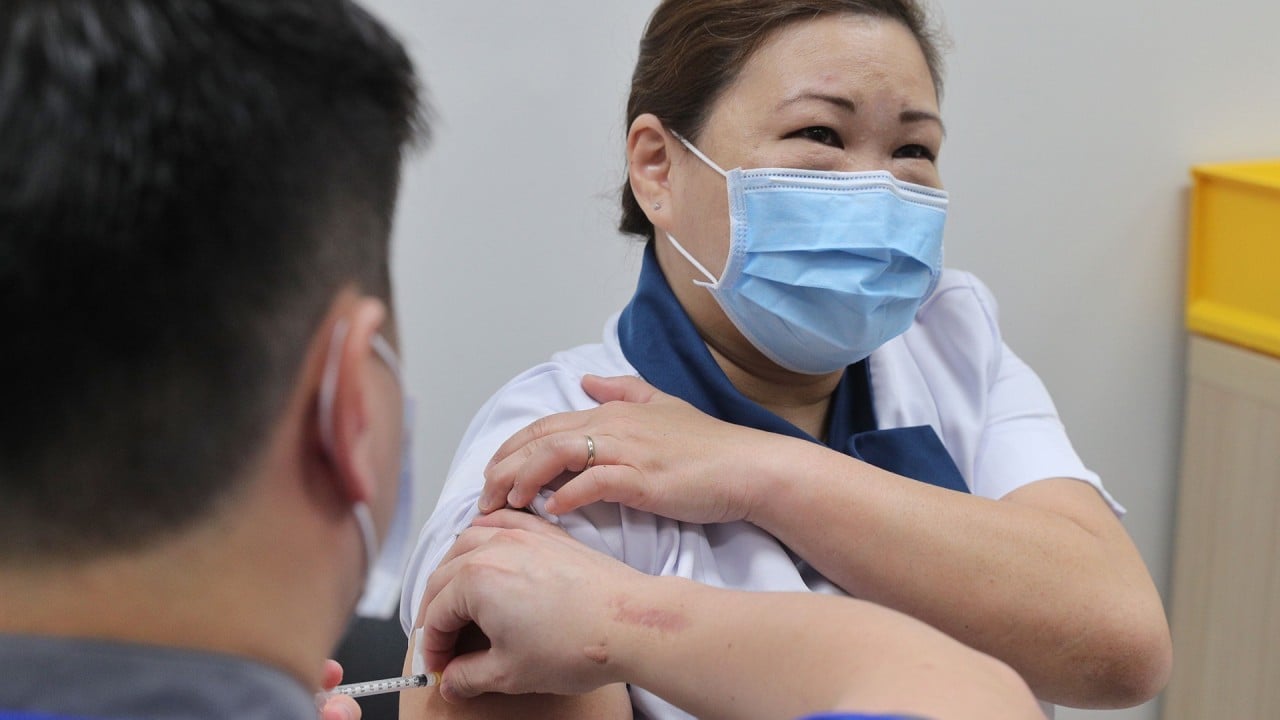
02:03
Singapore begins national Covid-19 vaccination programme
Norman Ng, 45, an entrepreneur in the health care business, said he had turned down the offer of an early vaccination. He too felt there was no pressing need, though he mused that getting inoculated might be useful if it meant he could travel again.
“The pandemic is under control and our health care system is well equipped enough for me not to worry too much about rushing for vaccination,” said Ng, adding that he “might feel differently if I was in Europe”.
Views like Ng’s mean Singapore’s vaccine drive risks becoming a victim of the country’s earlier success in fighting the virus.
Singapore police used TraceTogether Covid-19 data in murder case
CREATING A SENSE OF URGENCY
Health experts are doing their best to impress on Singaporeans the benefits of vaccination.
Gan in Parliament urged residents not to wait for an outbreak. Having more people inoculated before an outbreak occurred would lead to fewer falling sick and minimise stress on the health care system, he said. Last year, during a spike in cases when Singapore recorded a daily high of 1,426 new cases, community facilities had to be constructed overnight so hospitals wouldn’t be overwhelmed.
Teo Yik Ying, dean of NUS’ Saw Swee Hock School of Public Health, said the vaccine was “one of the most powerful tools” to protect people and “to ensure that the health care infrastructure remains resilient and robust to any surges in demand as a result of the pandemic”.
However, experts acknowledge that one reason for hesitancy may be that the tangible benefits to people’s individual lifestyles have not been made clear.
Experts have warned that regardless of the vaccination drive social distancing measures may need to stay in place because while the vaccine prevents the disease itself it is not known whether it will stop people from carrying and transmitting the virus.
Meanwhile Singapore, at least in comparison to many other countries, is already back to a relative normal.
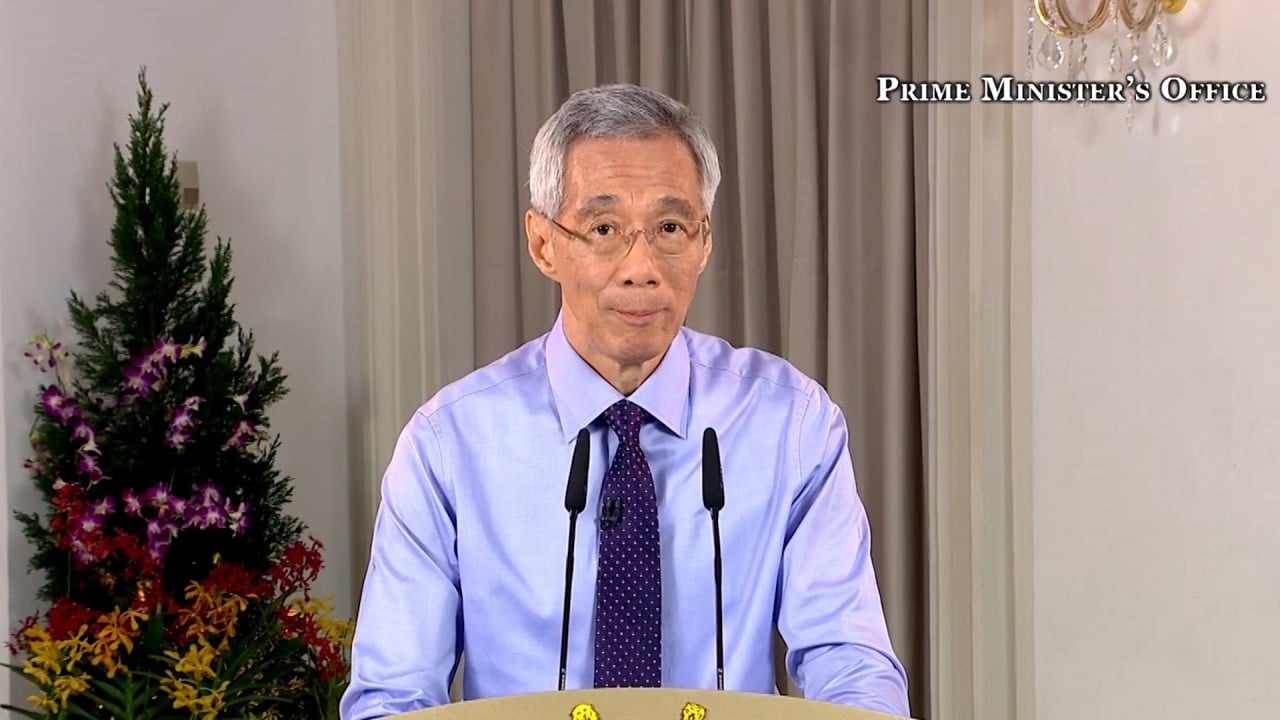
02:29
Singapore first in Asia to approve Pfizer-BioNTech Covid-19 vaccine
Singapore is currently in its third and final phase of reopening its economy and most establishments have already resumed operations save for nightclubs and karaoke lounges. Social groups of up to eight are allowed on the grounds people stay a metre apart and mask wearing is mandatory.
Given the relative lightness of the restrictions, the incentives to individuals getting vaccinated are not as clear cut.
As Dr Jeremy Lim, an associate professor at the NUS’ Saw Swee Hock School of Public Health, put it:
“The ‘next normal’ will look much like our current reality.”
A HELPING NUDGE
Lim said the authorities were right to not rush people into vaccinations or to compel them and that it was better to “lead by example” and vaccinate trusted individuals and professionals like doctors first.
Lim has himself been scheduled for a shot, as has his colleague Dr Hsu Li Yang, who said one thing in Singapore’s favour was that it did not have an organised anti-vaccination movement.
That meant people could be convinced through education. “There are a number of incentives that can also be provided, including greater freedom of travel and size of gatherings, although these will need to be carefully calibrated,” he said.
Serene Koh, principal adviser at Behavioural Insights Team, a UK outfit that uses behavioural science to tackle policy problems, said there were three ways the population could be nudged towards receiving the vaccine.
One way was through visibility. If people saw doctors and community leaders being vaccinated this would calm anxieties, she said.
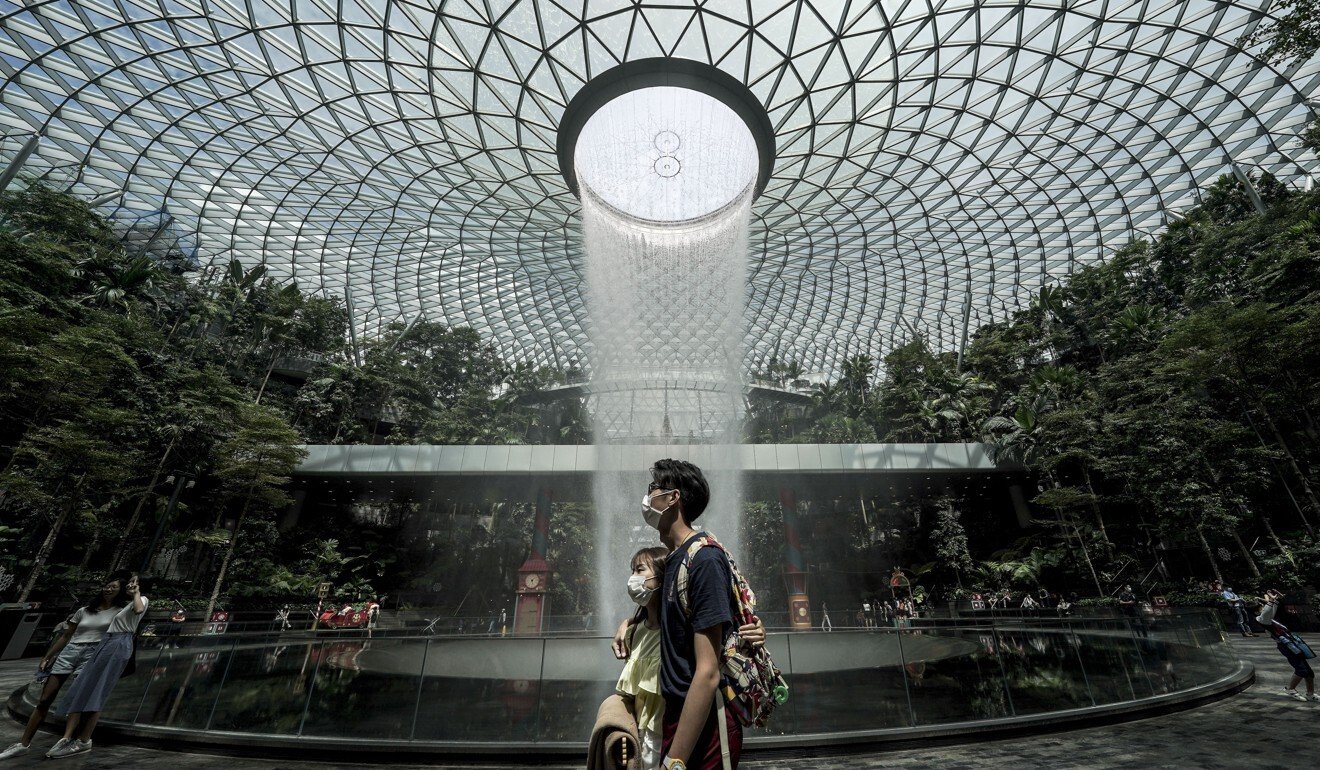
Secondly, it needed to be easy for people to get their shots, such as through weekend and evening sessions and walk-in clinics.
Thirdly, Koh said, people needed reminders. Studies had shown that between 30 to 60 per cent of people who say they will do something – like receive a vaccination – fail to follow through. To solve this, Koh suggested authorities remind people to get vaccinated and follow up with those who miss their appointments.
“Attitudes can shift, especially as we start reading about trial results and the varying levels of efficacy of the different vaccines,” said Koh.
This was what nudged Daphne Loo, 37, who works as a Covid-19 swabber for the government, into action.
She initially had concerns about the vaccine but had a rethink after researching the science behind it. When she was offered the jab two weeks ago, she took her chance.
“It wasn’t a hard decision to make,” she said. “I chose to get vaccinated because I truly believe that the only way we can be rid of this virus is to have as many people vaccinated as possible.”

